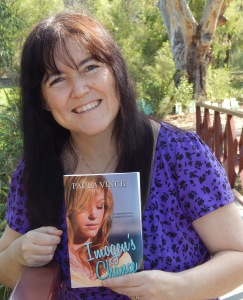 It’s an absolute delight to introduce our second ‘Write Time’ guest blogger. Paula Vince is an award winning Australian author, whose novels continue to inspire and challenge. Paula writes not only to entertain, but through her work she skillfully tackles difficult topics with sensitivity and insight, offering her readers a fresh perspective by enabling them to walk ‘in the shoes’ of her characters. Having been in the writing industry for many years, Paula knows the ‘write times’ well. Let’s welcome her now as she shares wisdom from her journey. Thanks, Paula.
It’s an absolute delight to introduce our second ‘Write Time’ guest blogger. Paula Vince is an award winning Australian author, whose novels continue to inspire and challenge. Paula writes not only to entertain, but through her work she skillfully tackles difficult topics with sensitivity and insight, offering her readers a fresh perspective by enabling them to walk ‘in the shoes’ of her characters. Having been in the writing industry for many years, Paula knows the ‘write times’ well. Let’s welcome her now as she shares wisdom from her journey. Thanks, Paula.
In 1951, a man named Arthur Koestler wrote, ‘A writer’s ambition should be to trade 100 contemporary readers for 10 readers in 10 years time, and for one reader in 100 years.’
If we agree with his premise, we’re being short-sighted when we judge the impact of any book by its immediate public reception, or by what we can ever see, for that matter.
One of the beauties of the written word in the form of stories and wisdom is that it has the potential to keep impacting new readers in time, maybe centuries after its author wrote it. For example, Jane Austen was born in 1775, but started a chain reaction of young woman readers who regard Lizzie Bennett as a role model, and swoon over Mr Darcy. Some of these readers surely haven’t even been born yet.
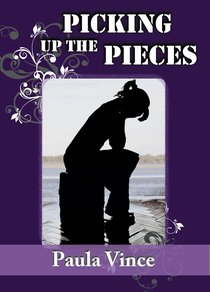 Another ripple effect evident through time is that of influence. Jane Austen strongly admired the writing of Samuel Richardson, Fanny Burney, Maria Edgeworth and Anne Radcliffe. Many contemporary people who love Austen have surely never heard of these long-ago authors, or know very little about them, yet still benefit from whatever Austen took on board from them. She, in turn, became an inspiration for more modern authors, including Virginia Woolf, Fay Weldon and J.K. Rowling. Next in the sequence, these ladies are no doubt influencing, a line of still more modern authors. Some of them surely haven’t even been born yet.
Another ripple effect evident through time is that of influence. Jane Austen strongly admired the writing of Samuel Richardson, Fanny Burney, Maria Edgeworth and Anne Radcliffe. Many contemporary people who love Austen have surely never heard of these long-ago authors, or know very little about them, yet still benefit from whatever Austen took on board from them. She, in turn, became an inspiration for more modern authors, including Virginia Woolf, Fay Weldon and J.K. Rowling. Next in the sequence, these ladies are no doubt influencing, a line of still more modern authors. Some of them surely haven’t even been born yet.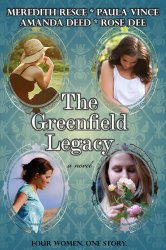
That’s what I love when I hear people refer to the roots of good literature, and encourage us to reach down into them. We may see the woody, physical roots of a tree with our naked eyes, yet the roots of literature are just as real. They are simply formed of more intangible matter, such as time.
In ‘One Year to a Writing Life’, author Susan Tiberghian says, ‘We enter this world on the shoulders of our predecessors, emerging from centuries of thought, reflection, storytelling and dreams. We learn by reading others, by reaching down into our universal roots.’
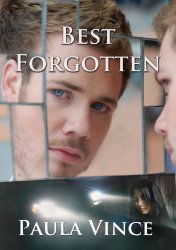 I’d like to finish with an equally inspiring thought along the same lines from ‘The Distant Hours’, a novel by Kate Morton. Percy Blythe, one of three sisters who lived in their family castle, reflects how her personal history was built on a lineage of words and ideas. ‘Daddy had said time and again, the family tree was laced together with sentences in place of limbs. Layers of expressed thought had soaked into the soil of the castle gardens, so that poems and plays, prose and political treatises would always whisper to her when she needed them. Ancestors she would never meet, who had lived and died before her birth, left behind them words, words, words, chattering to one another, to her, from beyond the grave, so she was never lonely, never alone.’
I’d like to finish with an equally inspiring thought along the same lines from ‘The Distant Hours’, a novel by Kate Morton. Percy Blythe, one of three sisters who lived in their family castle, reflects how her personal history was built on a lineage of words and ideas. ‘Daddy had said time and again, the family tree was laced together with sentences in place of limbs. Layers of expressed thought had soaked into the soil of the castle gardens, so that poems and plays, prose and political treatises would always whisper to her when she needed them. Ancestors she would never meet, who had lived and died before her birth, left behind them words, words, words, chattering to one another, to her, from beyond the grave, so she was never lonely, never alone.’
It’s an honour to do the same, each in our own small way?
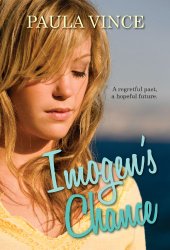 Paula Vince is a South Australian author of contemporary, inspirational fiction. She lives in the beautiful Adelaide Hills, with its four distinct seasons, and loves to use her environment as settings for her stories. Her novel, ‘Picking up the Pieces‘ won the religious fiction section of the International Book Awards in 2011, and ‘Best Forgotten‘ was winner of the CALEB prize the same year. She is also one of the four authors of ‘The Greenfield Legacy’, Australia’s first and only collaborated Christian novel. Her most recent novel, ‘Imogen’s Chance’ was published April 2014. For more of Paula’s reflections, you may like to visit her book review blog, The Vince Review where she also interviews other authors.
Paula Vince is a South Australian author of contemporary, inspirational fiction. She lives in the beautiful Adelaide Hills, with its four distinct seasons, and loves to use her environment as settings for her stories. Her novel, ‘Picking up the Pieces‘ won the religious fiction section of the International Book Awards in 2011, and ‘Best Forgotten‘ was winner of the CALEB prize the same year. She is also one of the four authors of ‘The Greenfield Legacy’, Australia’s first and only collaborated Christian novel. Her most recent novel, ‘Imogen’s Chance’ was published April 2014. For more of Paula’s reflections, you may like to visit her book review blog, The Vince Review where she also interviews other authors.
Thought-provoking post Paula, and I love the quote from The Distant Hours. I read that book before I started jotting down quotes from different authors, so that’s one to add to the list. You mentioned Lizzie Bennett, but I also wonder how many writers have taken up the pen after reading about fictional authors like Jo March and Anne of Green Gables. I’ve just finished reading Kate Morton’s new one, The Lake House, and it’s mentioned that three sisters used to print their own newsletters of happenings in their family and surrounds back in the 1930s. Reminded me of the newspapers Jo March and her sisters used to produce with Laurie next door. Certainly interesting to ponder the effect of words from one generation to the next. Thanks for sharing.
Hi Nola,
Yes, your words bring back memories. LLM’s cast of children in The Golden Road had their own personal newsletter too. It’s enough to make me wish I’d kept more of my old school writings than I ever did. I’m sure subtle changes can be noticed from one generation to the next.
These insights paint such a beautiful image of the capacity for writing to continue through and connect generations of readers. Thanks for sharing this perspective, Paula, and reminding us that we are but one tiny root tendril in the tree of written word, but by that, we contribute to something much greater than ourselves.
Hi Adele,
I like to think that writers like us of the early twenty first century may spread our roots into the future. And I agree the analogy of the tree is great. Thanks for having me. It’s always fun being your guest.
Lovely, thoughtful post Paula. What a privilege to have one’s books reaching into the next generation and the next 🙂 I know I’ve been influenced by many writers, not least Lewis and Tolkien, who turn were influenced by earlier writers – like George MacDonald and the Norse sagas, going back centuries in time 🙂 And then there are the influences we may be less aware of – Shakespeare, Milton, Homer, the Bible – to name a few. What a wondrous chain of ideas and words 🙂
Hi Jenny,
Your comment makes me chuckle, to think of several teenagers I know who have said they hate Shakespeare, for example, little knowing how much his work has influenced other stories they love, and the very phrases they use. I myself always loved the Bronte sisters, who were influenced by Lord Byron. It’s good to think the cycle doesn’t stop.